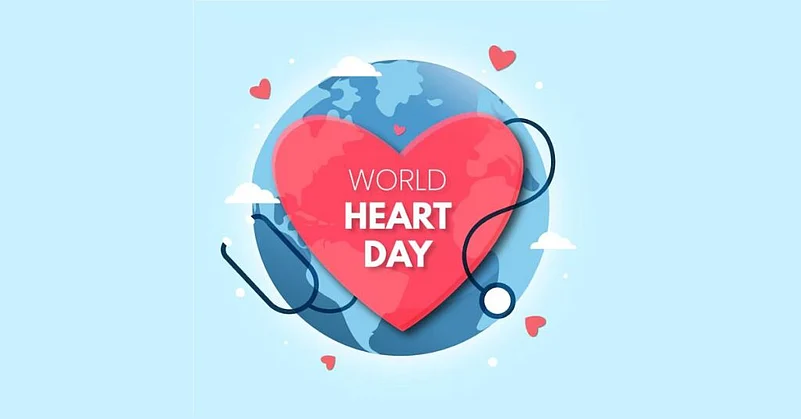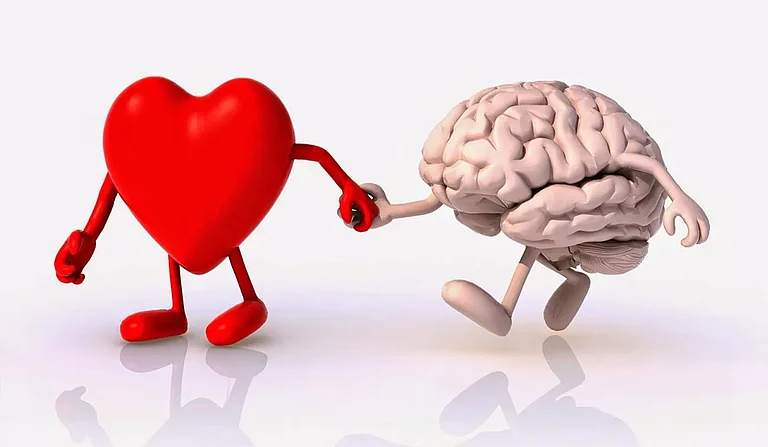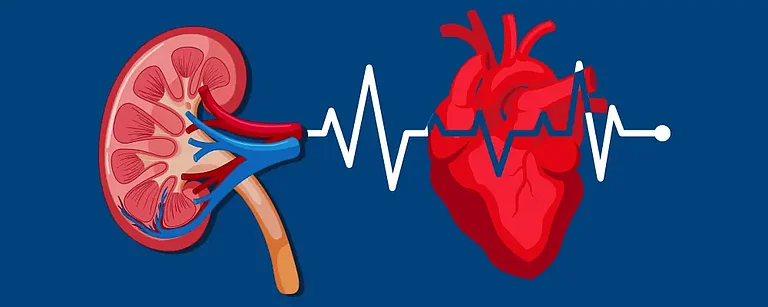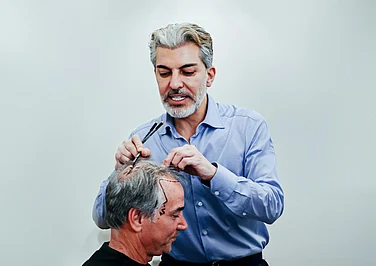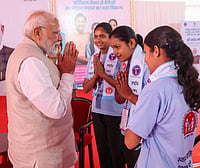“The biggest threat today to the heart is not age or genes — it’s our own lifestyle,” warns Dr. Vashisth Das, a senior cardiologist at Chinmaya Hrudayalaya Hospital in Bengaluru, Karnataka. Speaking on World Heart Day today, September 29, he expressed serious concern over the alarming rise in lifestyle-related heart issues among India’s youth.
So, what’s making our youth vulnerable to heart diseases, and can these risks be controlled?
Dr. Das explains that risk factors fall into two categories — modifiable and non-modifiable. So, what can we control? Modifiable risk factors include high blood pressure, high cholesterol, elevated blood sugar, obesity, lack of physical activity, poor dietary habits, tobacco use, excessive alcohol, and chronic stress — all of which stem largely from lifestyle choices.
But what about the risks we can’t change? “Non-modifiable factors include age, sex, genetic predisposition, race, and family history. While these are beyond one’s control,” Dr. Das stresses, “acknowledging them helps in taking timely, preventive actions. Particularly, a strong family history combined with an unhealthy lifestyle can sharply elevate heart disease risk.”
Can people assess their heart health at home, or is professional testing always necessary? According to Dr. Das, basic cardiovascular self-assessment is very much possible — and advisable. “How can you do that? Well, begin with seven simple checks: monitor your blood pressure, cholesterol, and blood sugar levels; review your diet and exercise habits; assess your use of tobacco or alcohol; and keep an eye on your weight relative to your age and height,” he explains. These small self-checks, when done routinely, can serve as early alerts long before serious symptoms develop.
But how do we know if we’re ignoring early warning signs of heart trouble, since we are told that heart disease often starts silently? So how does one detect it early? “You should never ignore subtle symptoms like chest discomfort, shortness of breath, pain in the arm, neck, or jaw, persistent fatigue, dizziness, swelling in the legs, nausea, or unusual sweating,” Dr. Das informs. These symptoms are frequently misattributed to other less critical issues — a mistake that could delay timely intervention.
Who needs heart check-ups, and how often should they be done? Dr. Das responds, “Everyone above the age of 30 should undergo an annual heart check-up.” Given the rising incidence of early-onset heart disease, especially in urban areas, he strongly advises against waiting for symptoms. Regular screening can help catch silent conditions like hypertension or blocked arteries before they escalate into major cardiac events.
Is a family history of heart disease a serious concern? “Yes, family history is one of the strongest predictors,” Dr. Das affirms. But why does it matter so much? Inherited traits can affect cholesterol levels, blood pressure, and overall vascular health. Combined with similar household habits — sedentary lifestyle, poor diets, and stress — the genetic risk compounds, Dr. Das tells you. “Understanding your family’s health profile is essential for both you and your doctor to tailor preventive strategies,” he adds.
What are the most impactful lifestyle changes to reduce risk? Or, say, which changes matter most? Dr. Das breaks it down into three powerful interventions: “First, adopt a heart-healthy diet — rich in fruits, vegetables, whole grains, and lean protein, while avoiding excess salt, sugar, and unhealthy fats. Second, include both aerobic and strength-building physical activity in your weekly routine. And third, quit tobacco and moderate your alcohol intake.” These adjustments, he says, can dramatically lower the chances of developing heart disease.
Does diet really have that much of an impact on heart health? Yes — and how! Dr. Das explains that poor dietary choices directly contribute to elevated LDL cholesterol, high blood pressure, inflammation, and obesity. “Foods high in trans fats, added sugars, and sodium are especially harmful. A balanced diet, on the other hand, improves lipid profiles and reduces strain on the cardiovascular system,” he explains.
What about older adults or heart patients? Do they benefit from lifestyle changes? Dr. Das says, “Absolutely yes.” Even those who have suffered a heart attack or are living with chronic cardiac conditions can see meaningful improvements. Lifestyle modifications — no matter when they begin — can improve outcomes, slow disease progression, and enhance quality of life.
Does sleep affect your heart? Yes. Poor sleep patterns — whether due to insufficient hours or disrupted cycles — elevate stress hormones and increase the risk of hypertension, heart attacks, and weight gain. Dr. Das emphasizes aiming for 7–9 hours of quality sleep per night to allow the heart to rest, regulate blood pressure, and balance hormones.
Can stress alone damage your heart? Yes, and significantly. But how exactly? Chronic stress stimulates hormones like cortisol and adrenaline, which raise heart rate and blood pressure. Over time, this leads to inflammation, plaque buildup, and artery damage. Dr. Das strongly recommends stress management through yoga, mindfulness, and deep-breathing exercises as essential tools for heart protection.
What’s the best exercise plan for heart health? The World Heart Federation advises at least 150 minutes of moderate aerobic exercise (such as brisk walking or swimming) or 75 minutes of vigorous activity, combined with strength training on two or more days. Dr. Das also encourages yoga and stretching to support the nervous system and overall well-being.
Can heart patients exercise safely, or is it too risky? Yes — with proper guidance. How? Dr. Das says, “Exercise for heart patients must be personalized.” He advises avoiding heavy isometric activities like push-ups or lifting weights without supervision. Patients should also avoid outdoor workouts in extreme weather. Most importantly, he emphasizes gradual progression and staying hydrated — but not overhydrated — under a doctor’s advice.
Is a sedentary lifestyle truly as harmful as smoking? Indeed, and why? Prolonged sitting slows blood flow, promotes weight gain, and raises blood pressure — all of which tax the heart. Dr. Das urges people to break long sitting periods every 30 minutes with short walks or stretches. “Movement is medicine,” he adds, underscoring that even minor activity can yield major benefits.
What medications should cardiac patients be aware of? What does the typical treatment plan involve? Common heart medications include beta-blockers, ACE inhibitors, calcium channel blockers, statins, antiplatelets, and anticoagulants. More recent advancements include SGLT2 inhibitors and ARNI, which are especially effective in managing heart failure and diabetes. Patients are advised to stay informed about their prescriptions and never modify dosage without consulting their physician.
Should people monitor their heart at home? Yes. But how? “Home monitoring tools such as blood pressure cuffs and smartwatches with ECG features can detect early signs of arrhythmia or hypertension.” However, Dr. Das cautions that these are supplements, not substitutes, for professional medical evaluation. Regular readings can still offer vital insights, especially for those over 40 or with known risk factors.
And what about women’s heart health? Do they experience different heart attack symptoms? They do — and often, the signs are subtle. While men usually report crushing chest pain, women may experience nausea, jaw pain, back pain, shortness of breath, or unusual fatigue. Because these symptoms are atypical, they’re often misdiagnosed. “Raising awareness around gender-specific symptoms is crucial,” Dr. Das emphasizes.
So, is heart disease still underdiagnosed in women? Unfortunately, yes, Dr. Das laments, and blames persistent perceptions surrounding the issue. “Female patients are also less likely to have their symptoms or risk factors thoroughly assessed.” Dr. Das calls for urgent gender-sensitive screening protocols and public awareness efforts.
There is also a myth that symptoms are always obvious and that medication alone is enough. People also think that all fats are bad, while in fact this is not so. Believing these myths, he warns, can lead to dangerous complacency and fatal delays in care.
Dr. Das terms ongoing innovations shaping the future of heart care as a revolution. How? Through AI-powered diagnostics, advanced imaging like 3D echocardiography, and wearable technologies for continuous monitoring. New frontiers like gene editing (CRISPR), regenerative medicine, and augmented reality-assisted surgeries are poised to redefine treatment and precision care. “The future is both exciting and life-saving,” Dr. Das says.
In line with the World Heart Federation’s campaign, Dr. Das closes with a powerful appeal: “We’re facing a cardiovascular crisis. Don’t miss a beat — take control of your heart health now. Every heartbeat counts.”




